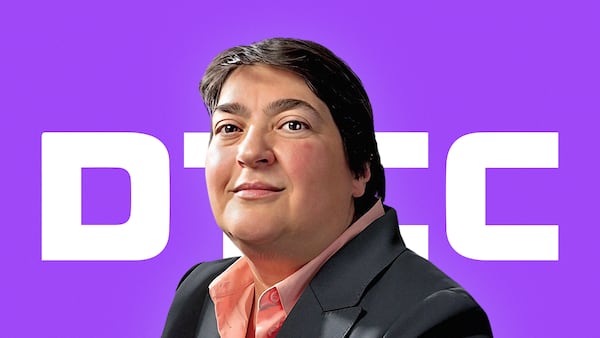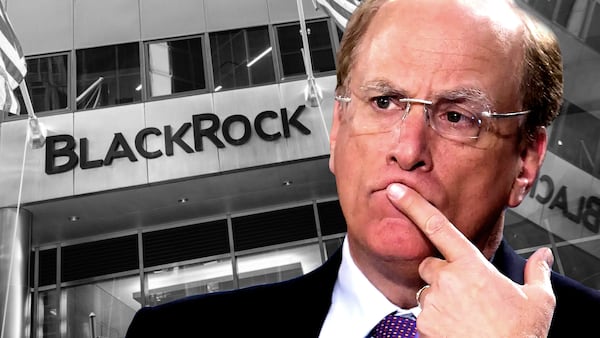- Prometheum's Ember Capital unit has soft-launched its Ethereum custody product.
- Having already picked a fight with the big boys of crypto, its co-CEO is now eyeing tokenisation.
- BlackRock and giant banks are just some entities working on tokenisation projects.
Aaron Kaplan seemed surprisingly relaxed for someone who’s picked a fight with the crypto lobby.
Not only has the co-CEO of digital asset trading platform Prometheum told the industry to stop asking for special treatment, he is coming for its lunch money with a new Ethereum custody service.
“We’re feeling very positive,” Kaplan told DL News, referring to the company’s recent soft launch of its service with unnamed clients.
The firm is also gearing up to tap into a projected $16 trillion boom in the trading of digital securities like equities and structured products — so-called tokenisation.
Siding with Gensler
The crypto lobby has amassed an $85 million war chest ahead of the US election to fight for its own favourable, tailored regulations.
But Kaplan continues to take the view of Gary Gensler, the SEC’s chair, who says that the federal securities laws are adequate to govern digital assets.
The company’s Ethereum product has already attracted negative attention from pro-crypto lobbyists and lawmakers, as it treats Ethereum as a security.
The SEC has never explicitly said that Ether is a security or a commodity — a contentious point for the crypto industry.
Kaplan said, however, that Prometheum has always taken the view it will follow securities laws, whatever they are.
‘We’ve never spent tens of millions of dollars trying to lobby for different laws in Congress.’
— Aaron Kaplan
“We’ve never spent tens of millions of dollars trying to lobby for different laws in Congress,” he said.
“We’re just asking for the law to be applied, and whichever way the law goes, we will analyse and proceed accordingly.”
The attitude has already served Prometheum well — it’s the only industry player with a special broker licence from the SEC — but has also made it enemies in the cryptoverse.
Tokenisation
Prometheum’s aim since its founding in 2017 has been to provide a liquid, compliant public market for transacting digital assets, Kaplan said.
To that end, the company’s Capital unit went through the rigorous process of obtaining a special purpose broker dealer licence — a new category of approval that the SEC introduced in 2021.
It’s still the only company with this licence, which, in conjunction with its licensed trading arm, allows it to trade, clear, settle, and custody digital assets — the components of a soup-to-nuts service for investors.
In conjunction with the company’s other trading licences, Prometheum can do all this with any kind of security.
While that now includes Ethereum, the company could also handle tokenised securities — on chain versions of assets like stocks and bonds.
It’s a sign BlackRock’s push into tokenisation is drawing more corporate followers.
Investment banks are beginning to issue instruments like bonds on the blockchain, and promoting the cost savings tokenisation.
However, widespread adoption of blockchain for assets like stocks and bonds is slow.
The digital assets subcommittee in the House of Representatives meets on Wednesday to discuss whether there are legal impediments to tokenisation.
Kaplan said, however, that the impediments are more structural than legal — and that’s where Prometheum sees an opportunity.
“I don’t think anything’s necessarily missing in the law,” Kaplan said.
“What’s missing is the market infrastructure licensed under securities laws that allows for the public trading, clearing, settlement, and custody of digital securities.”
Controversy magnet
But Prometheum’s fundamental operating premise — that federal securities laws are adequate to regulate digital assets — has positioned it at the nexus of the most heated debate in crypto in the US.
Industry leaders like Coinbase CEO Brian Armstrong are adamant that crypto is a unique technology that needs its own laws.
A year ago, a then-low profile Kaplan testified in Congress.
He told lawmakers that contrary to complaints from the crypto industry, it is possible to register with the SEC, and that platforms like Coinbase were “scofflaws” for failing to do so.
An ensuing industry backlash levelled accusations at Prometheum that ranged from the arguably reasonable — that it appeared to have no business model — to the absurd. No, Kaplan is not Gensler’s nephew.
Kaplan, however, appears unfazed.
“If the crypto industry wants crypto, they got it. That’s not our primary focus,” he said.
“Our primary focus is securities on the blockchain, and investment contracts are just a small fraction of that.”
Reach out to the author at joanna@dlnews.com.







